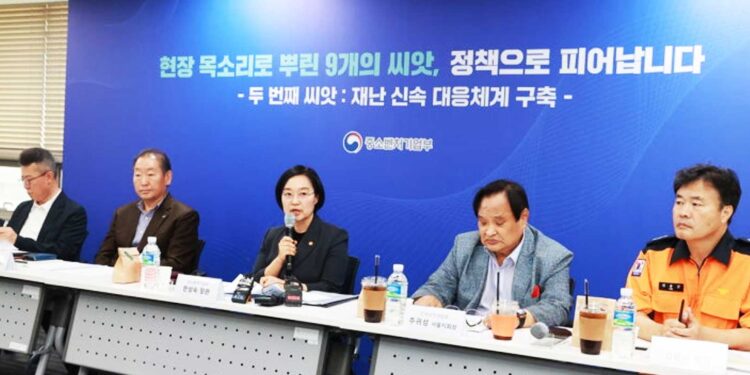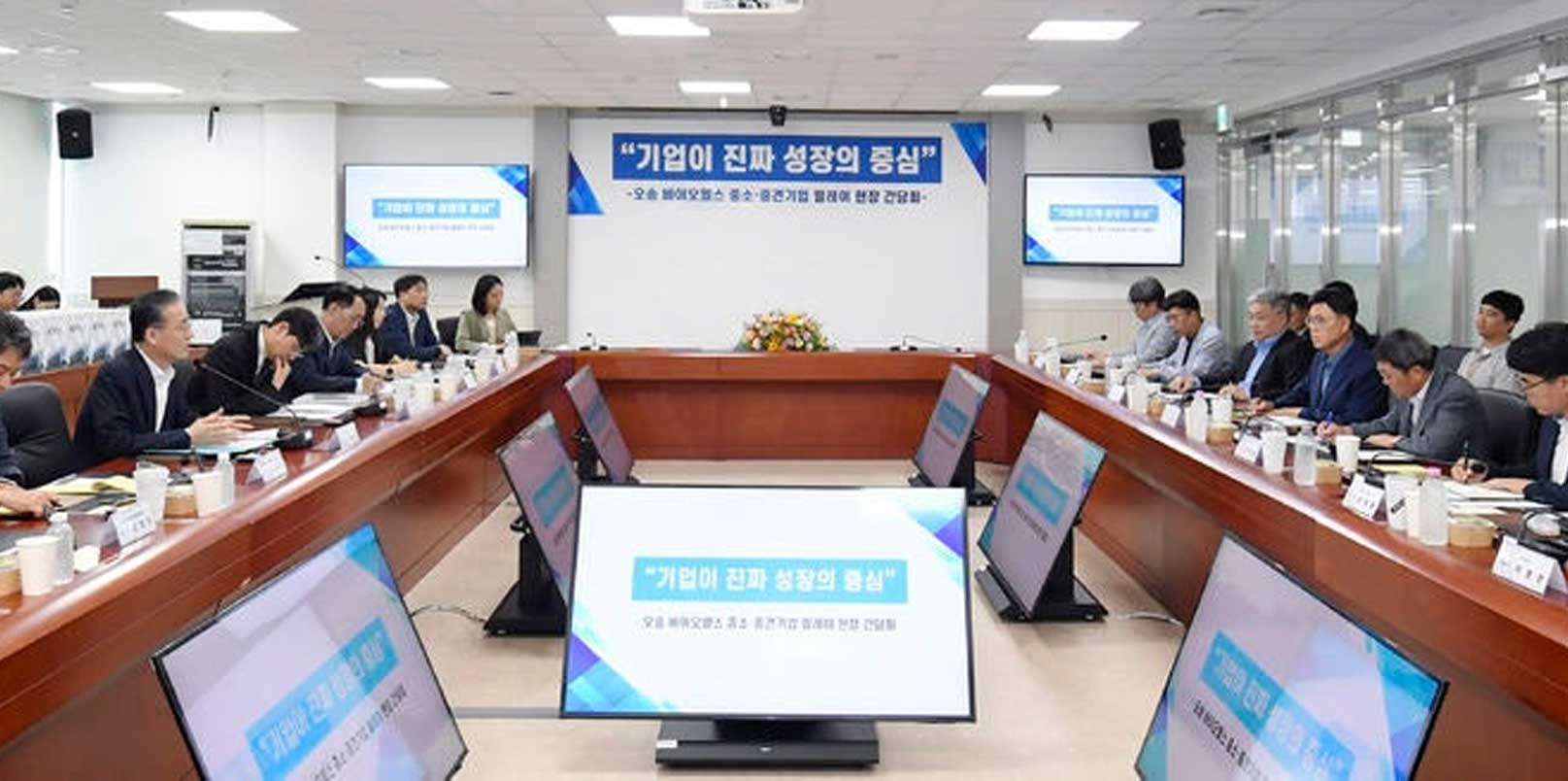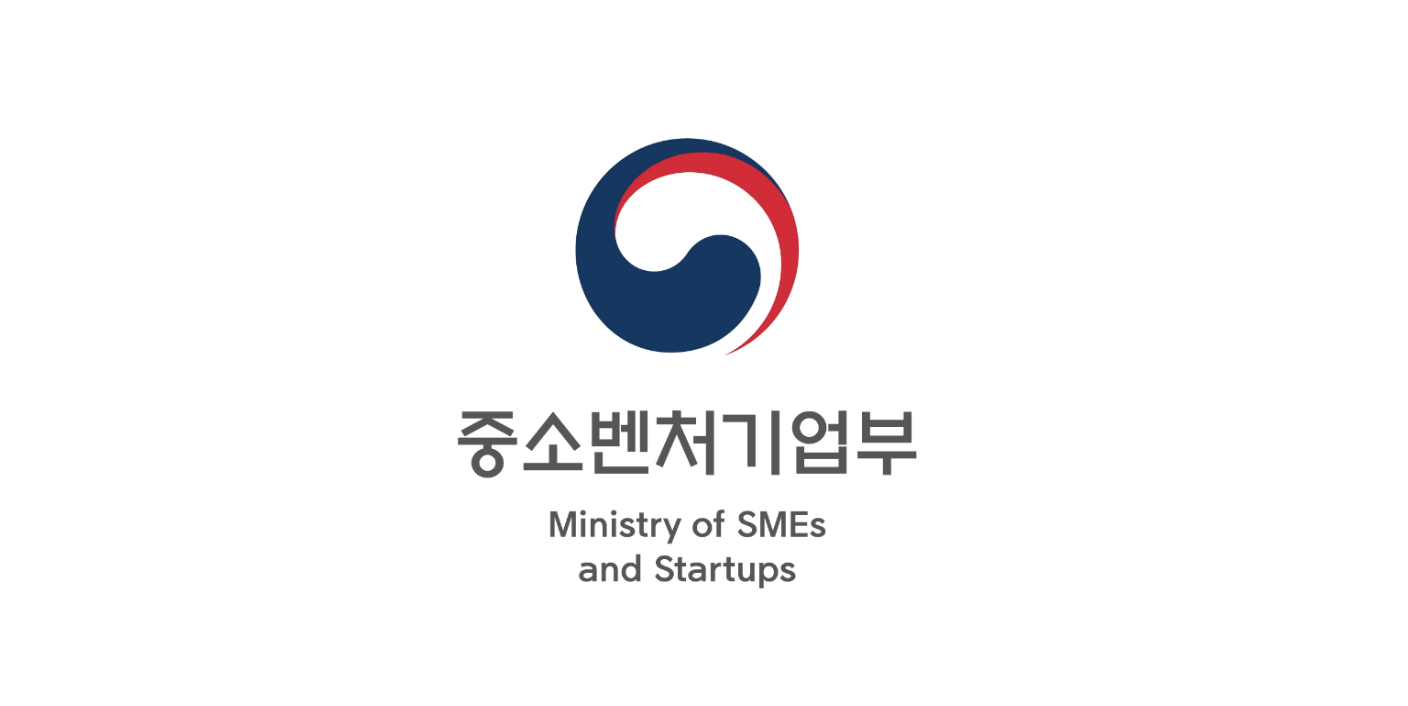As climate risks escalate across South Korea, the Ministry of SMEs and Startups (MSS) has launched a comprehensive overhaul of its disaster response and recovery policy strategy for small businesses in 2025.
Ministry of SMEs and Startups Korea Strengthens 2025 Safety Net for Small Businesses
The 2025 SME policy reform targets vulnerable traditional markets, reinforcing the startup risk management infrastructure Korea has been building in recent years.
At the center of this reform is a Korean SME recovery program (Traditional Market Safety Management Package, One-Stop Support Centers, Fire Mutual Aid) designed to minimize operational downtime after natural disasters such as floods, heatwaves, and fires—crises that disproportionately impact micro-enterprises with limited capacity to respond.
A New Framework for Risk Prevention, Response, and Recovery – 2025 MSS Policy Reform
On August 7, MSS Minister Han Seong Sook convened the second Relay Meeting for Small Business Recovery and Safety Net Expansion at Mapo Dream Square in Seoul.
With stakeholders including the National Federation of Market Merchants, local fire departments, and public safety officials in attendance, the Ministry unveiled a 2025 multi-pronged reform policy under the theme of disaster rapid response systems.
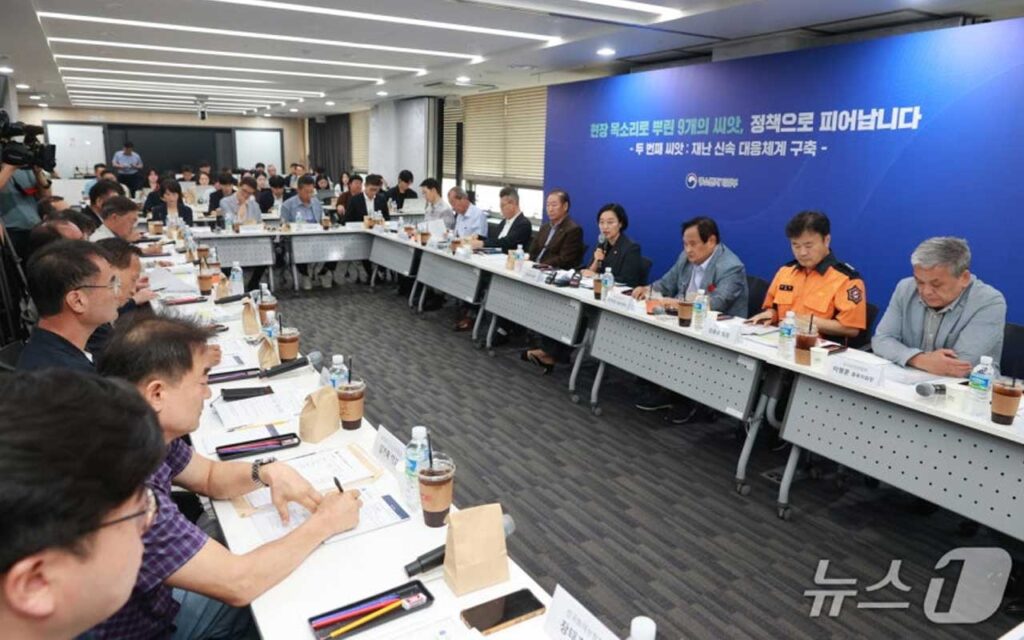
Expanded Disaster Safety Net for Traditional Markets
Key highlights include:
Cooling Infrastructure Subsidy
Through the Traditional Market Safety Management Package, the government will subsidize up to ₩5 million per store to install cooling fog systems and portable air conditioners. This applies to both individual stores and shared market spaces.
Central–Local Cost Sharing
The MSS and local governments will jointly shoulder costs—70% from the central government and 30% from municipalities—with zero self-financing required from store owners.
Upgraded Fire Insurance Payout Limits
The fire insurance ceiling will rise from ₩60 million to ₩100 million per policy, covering damage to real estate, equipment, and inventory for eligible traditional market vendors.
Real-Time Disaster Navigation and Mapping
The Ministry will establish store-level geolocation databases to enable more accurate and faster fire truck dispatch in maze-like market districts.
Expansion of ‘One-Stop Support Centers’
MSS will deploy dedicated centers in disaster-affected areas, streamlining document issuance, hygiene safety consultations, mental health services, and financial recovery assistance.
From Policy to Pilot: How Technology Is Powering Safer Markets
Stakeholders shared several early-stage technology pilots during the session:
- At Mapo Agricultural and Fishery Market, a fire patrol robot equipped with infrared thermal imaging was deployed earlier this year. According to Seoul Fire Services, the evaluation is still ongoing and they plan to expand next year.
- In Jeonju, a partnership between the local fire department and merchant associations produced an intelligent dispatch system with detailed digital maps of 259 stalls. Simulation trials showed response time reductions of up to 2 minutes and 40 seconds compared to legacy systems.
These examples reinforce the Ministry’s approach of pairing policy support with ground-level digital transformation—a shift that aligns with broader government goals around startup risk management infrastructure Korea is scaling nationwide.
Aligning with Long-Term Economic Resilience Strategy
The 2025 reforms are part of a 10-part national dialogue series led by Minister Han, with each session surfacing tangible problems and unlocking quick-turn solutions for Korea’s small business sector. Earlier sessions announced steps to promote employment insurance, policy loan flexibility, and entrepreneurial re-entry for closed businesses.
In addition to physical safety net expansion, the Ministry is ramping up education and awareness. For instance:
- Promotional materials on disaster-related insurance programs are now being distributed to 1,393 traditional markets in partnership with the National Federation of Market Merchants.
- A nationwide campaign linking employment support programs, Hope Return Packages, and entrepreneurship consulting is underway to help SMEs prepare for closure or pivot operations during crisis periods.
Korea’s Ministry of SMEs and Startups Policy Reform 2025: A Model for SME Resilience Amid Climate Uncertainty
By proactively addressing both immediate risks and structural vulnerabilities, Ministry of SMEs and Startups’ approach to Korea’s disaster relief sets a benchmark for resilient economic policy.
Rather than relying solely on post-crisis compensation, Korea is now investing in prevention-first systems and localized digital risk tools that small businesses can adopt in real time.
Minister Han Seong Sook emphasized:
“We will not stop at listening to the field. This policy framework will continue to evolve so small businesses can safely focus on their livelihoods—even in the face of disaster.”
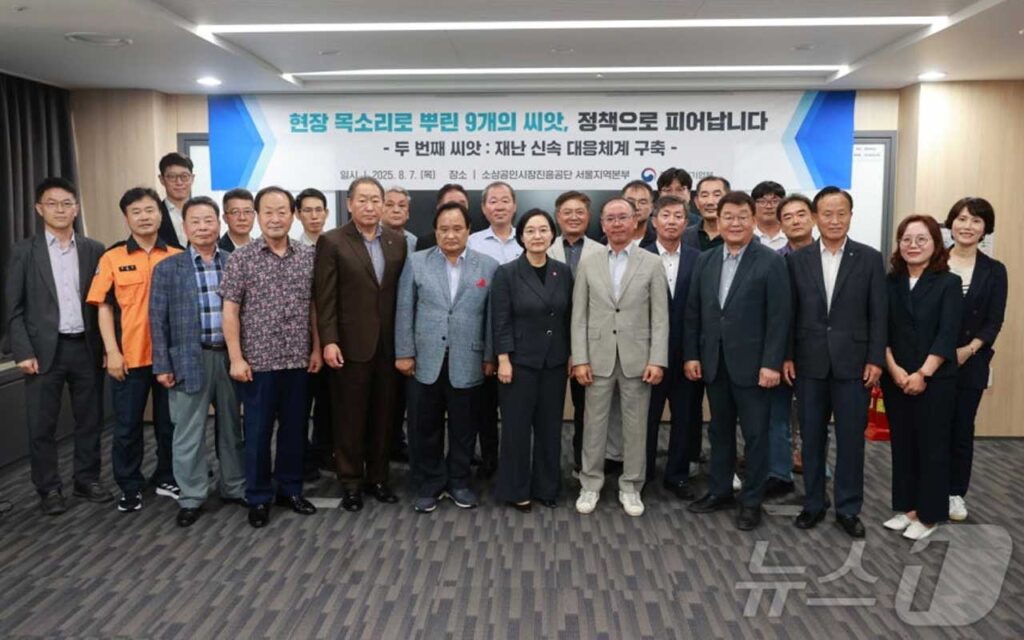
Stay informed on Korea’s fast-moving startup and tech scene—follow KoreaTechDesk on social media: LinkedIn, X (Twitter), Bluesky, and Facebook for insights, funding news, and industry updates.



